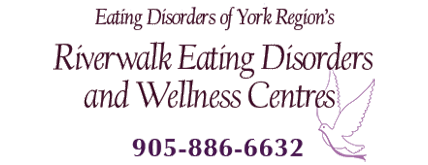What is Occupational Therapy?
Occupational Therapy (OT) is a rehabilitation profession that focuses on activity. The word “occupation” refers to anything that people do to occupy time. Occupational Therapists (OTs) have a deep understanding of the relationship between health and meaningful activity. Engaging in meaningful activity helps promote healing and wellness, and an individual’s level of wellness can impact their ability to engage in meaningful activity. In short, OTs help people going through life challenges get back to doing the things they want and need to do.
Mental health issues such as eating disorders, addiction, depression, or anxiety can make it difficult to do things. They can make things like eating a meal, getting out of the house, or even just getting out of bed extremely difficult. They can get in the way of activities like work, social gatherings, and valued hobbies and pastimes. OTs can help people manage their destructive thought patterns, feelings, and behaviours so that they are able to work on getting involved in the things in life that are important to them. Concurrently, OTs promote the engagement in meaningful activity as a means of overcoming mental health challenges.
OT can incorporate treatment paradigms such as Cognitive Behavioural Therapy (CBT), Dialectical Behavioural Therapy (DBT), Motivational Interviewing (MI), Behavioural Activation (BA), and more, depending on what clients are interested in trying. OTs work with clients to “meet them where they’re at” in terms of recovery so that they can set and work on small, manageable goals.
If you’re interested in learning about OT and how this can help you or someone you know, please email info@edoyr.com or call 905 886-6632.
Individualized Support
Individualized support may be available for those who have goals related to mental health recovery and meaningful activity. Goals related to meaningful activity may include but are not limited to:
Addressing problem behaviours and/or activities through the use of Cognitive Behavioural Therapy (CBT), Dialectical Behavioural Therapy (DBT), Motivational Interviewing (MI) and/or Behavioural Activation (BA) - based approaches
Getting back to meaningful activities such as work, volunteering, or socializing after going through a mental health challenge
Maintaining wellness and recovery-related behaviours and activities post-treatment
Exploring the use of meaningful activity as a way of finding what it means to live a meaningful life, through an Existential/Logotherapeutic appro ach.
Individualized support may include a predetermined number of sessions, depending on where individuals are in their recovery, each of which will address a certain aspect of the goal-setting process:
Assessment
Setting a goal
Implementing the goal
Troubleshooting
Strategies for maintenance
Group OT Programs
DATE & TIME: TBA - please inquire.
LOCATION: Please Inquire
Getting to the point where you're ready to make a change can be hard. Starting to actually make that change can be even harder. Where do you start? You may sense a certain dissatisfaction with your current circumstances, but not know exactly where to go from there. You may have a vague idea of what you need to change, but not know exactly how to take the first step. This group is about taking that sense of dissatisfaction, that desire to change, and turning it into a concrete goal that can be acted upon in small, meaningful steps.
Using SMART Goal Setting, group members will work on identifying and creating a meaningful, yet achievable, goal that they will work on for six weeks. With support from the group facilitator and other group members, participants will take steps towards their goal, troubleshoot potential challenges, and learn skills for recovery and positive change that can be adapted to a variety of life situations.
Goals may include but are not limited to:
Addressing problem behaviours and/or activities through the use of Cognitive Behavioural Therapy (CBT), Dialectical Behavioural Therapy (DBT), Motivational Interviewing (MI) and/or Behavioural Activation (BA) -based approaches
Getting back to meaningful activities such as work, volunteering, or socializing after going through a mental health challenge
Maintaining wellness and recovery-related behaviours and activities post-treatment
Exploring the use of meaningful activity as a way of finding what it means to live a meaningful life, through an Existential/Logotherapeutic approach
Each group session will address a specific aspect of the goal-setting process:
Laying out the issues;
Setting a goal;
Implementing the goal;
Troubleshooting; and
Strategies for maintenance.
This will be a closed group, and group members will be asked to commit to attending all six sessions to the best of their ability.
This group is open to any individual self-identifying as having a mental health issue or life challenge, with a desire to make a change in behaviour that will promote wellness and healing. A brief phone interview will be required before starting services to discuss treatment options and fee scale. Please call 905-886-6632 or email info@edoyr.com more information.
*At least four registrations are required for the group to start. If there is insufficient registration received the week before the group is scheduled to begin, the group may be cancelled or postponed.
